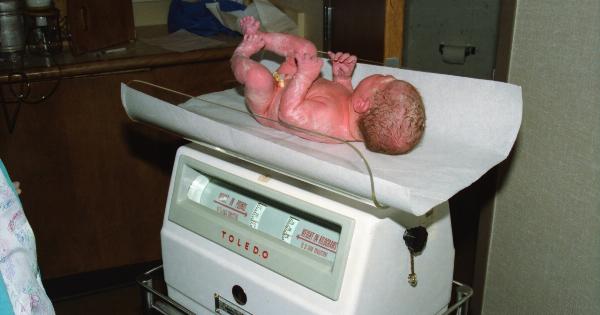Baby constipation is a common issue that many parents face. It occurs when your baby’s bowel movements are infrequent or difficult to pass. While it can be worrying for parents, it is rarely a cause for concern and can be easily treated.
In this article, we’ll discuss the causes of baby constipation, signs to look out for, and ways to treat it.
What Causes Baby Constipation?
There are several reasons why your baby may be constipated. One of the most common causes is a change in their diet. This could be due to starting solids or changing from breast milk to formula.
When a baby’s diet changes, it can take their digestive system some time to adjust.
Another cause of constipation in babies is dehydration. If your baby is not getting enough fluids, this can cause their stool to become hard and difficult to pass.
It’s essential to make sure your baby is getting enough fluids, whether it be through breast milk, formula, or water.
In some cases, medical conditions can cause constipation in babies. Such conditions include Hirschsprung’s disease or an underactive thyroid gland.
However, these conditions are rare, and you should speak to your pediatrician if you suspect your baby has an underlying medical issue.
What Are the Signs of Baby Constipation?
It’s not always easy to tell if your baby is constipated. However, there are some signs to look out for:.
- Infrequent bowel movements: If your baby hasn’t had a bowel movement in more than three days, this may be a sign of constipation.
- Hard, dry stools: If your baby’s stool is hard and dry, this can be a symptom of constipation.
- Painful bowel movements: If your baby cries or seems uncomfortable during a bowel movement, this may be a sign that they are constipated.
- Bloating or discomfort: If your baby seems irritable or is experiencing bloating or discomfort, this may be due to constipation.
How to Treat Baby Constipation
Thankfully, there are many ways to treat baby constipation. Here are some simple methods you can try:.
1. Increase Fluid Intake
The first step in treating constipation in babies is to increase their fluid intake. This can be done by offering more breast milk or formula. If your baby is over six months old, they can also have water.
However, it’s essential to speak to your pediatrician before giving your baby water.
2. Massage Your Baby’s Tummy
Gently massaging your baby’s tummy can help move their stool along and relieve constipation. Use gentle pressure and circular motions, moving your hands in a clockwise direction around their belly button.
3. Try a Different Formula
If your baby is formula-fed, you may want to consider switching to a different formula. Some babies may be sensitive to certain ingredients in their formula, which can cause constipation. Speak to your pediatrician about trying a different formula.
4. Offer More Fiber
For babies over six months old who have started solids, offering high-fiber foods like prunes, pears, and peas can help relieve constipation.
However, it’s essential to introduce these foods slowly and in small amounts to avoid any digestive issues.
5. Give Your Baby a Warm Bath
A warm bath can help relax your baby’s muscles and relieve constipation. Gently massage their tummy while they are in the bath to help move their stool along.
6. Use Suppositories or Laxatives
If your baby’s constipation is severe or has been going on for a long time, your pediatrician may recommend using suppositories or laxatives. However, it’s essential to speak to your pediatrician before using any medication on your baby.
Conclusion
Baby constipation is a common issue that many parents face. However, by increasing your baby’s fluid intake, offering high-fiber foods, and gently massaging their tummy, you can help relieve constipation.
If your baby’s constipation persists or is causing them discomfort, it’s essential to speak to your pediatrician.




























